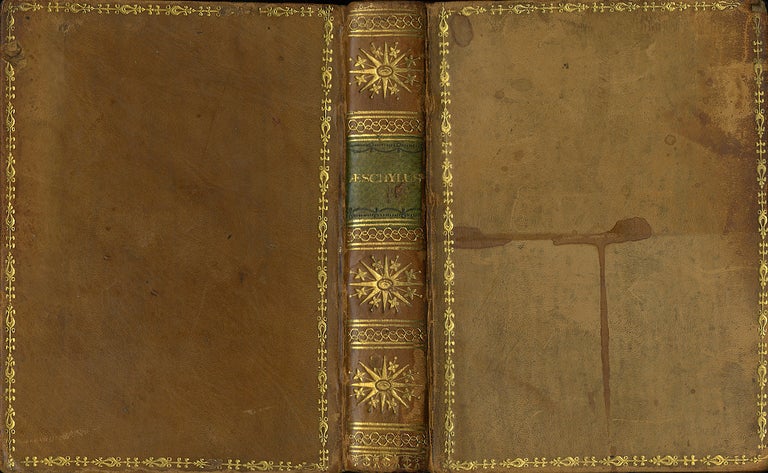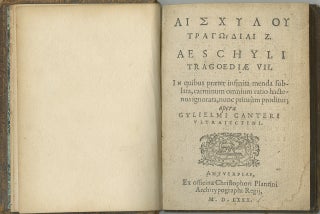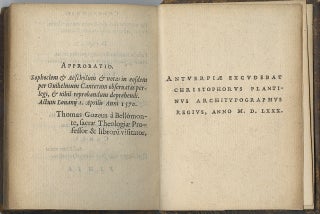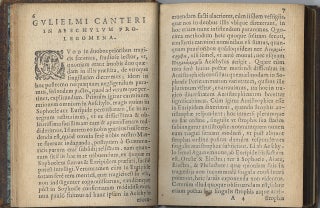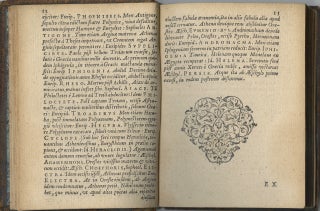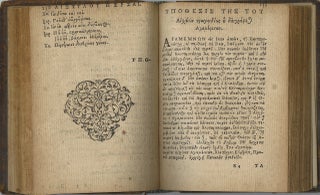Aeschyli Tragoediae VII. In quibus praeter infinita menda sublata, carminum omnium ratio hactenus ignorata, nunc primum proditur; opera Gulielmi Canteri ultralectini
Antwerp: Christophe Plantin (Dutch: Christoffel Plantijn), 1580. First Canter Edition. 32mo; 4 1/4 x 3 in. (152 x 80 mm); pp. 355 + vii; texts in Greek, introduction and notes in Latin. Title with woodcut printer's device, woodcut head- and tail-pieces and decorative initials, trimmed at head and foot, touching a few headlines or signatures, some staining, and one small paper loss (p. 97) not affecting the text. 19th century tan calf with gilt dentelle on covers, gilt green label and gilt decorations on spine, blue marbled endpapers; binding showing some signs of use and wear to edge, light stain to front cover, binding tight.
[Adams A270].
Christophe Plantin was a French Renaissance humanist and book printer and publisher who resided and worked in Antwerp. Early on the quality of his work as a bookbinder brought him into contact with nobility and wealth. By 1549, he headed one of the most well-respected publishing houses in Europe and is probably best known for his Polyglot Bible, which has parallel texts in Latin, Greek, Syriac, Aramaic, and Hebrew. Latin and Greek classics, multilingual dictionaries, ligurgical books and editions of St. Augustine and St. Jerome were issued by Plantin, who had 20 presses and 73 workmen by 1575. Plantin adopted a printer's mark which would appear in various forms on the title pages of all Plantin Press books. The motto Labore et Constantia ("By Labor and Constancy") surrounds the symbol of a pair of compasses held by a hand extending from a bank of clouds and inscribing a circle. The center point of the compasses indicates constancy, the moving point which renders the circle is the labor. Plantin holds this instrument in portraits of him, such as the one commissioned from the Flemish painter Peter Paul Rubens.
Item number: 377
Price: $1,200.00
Share:
